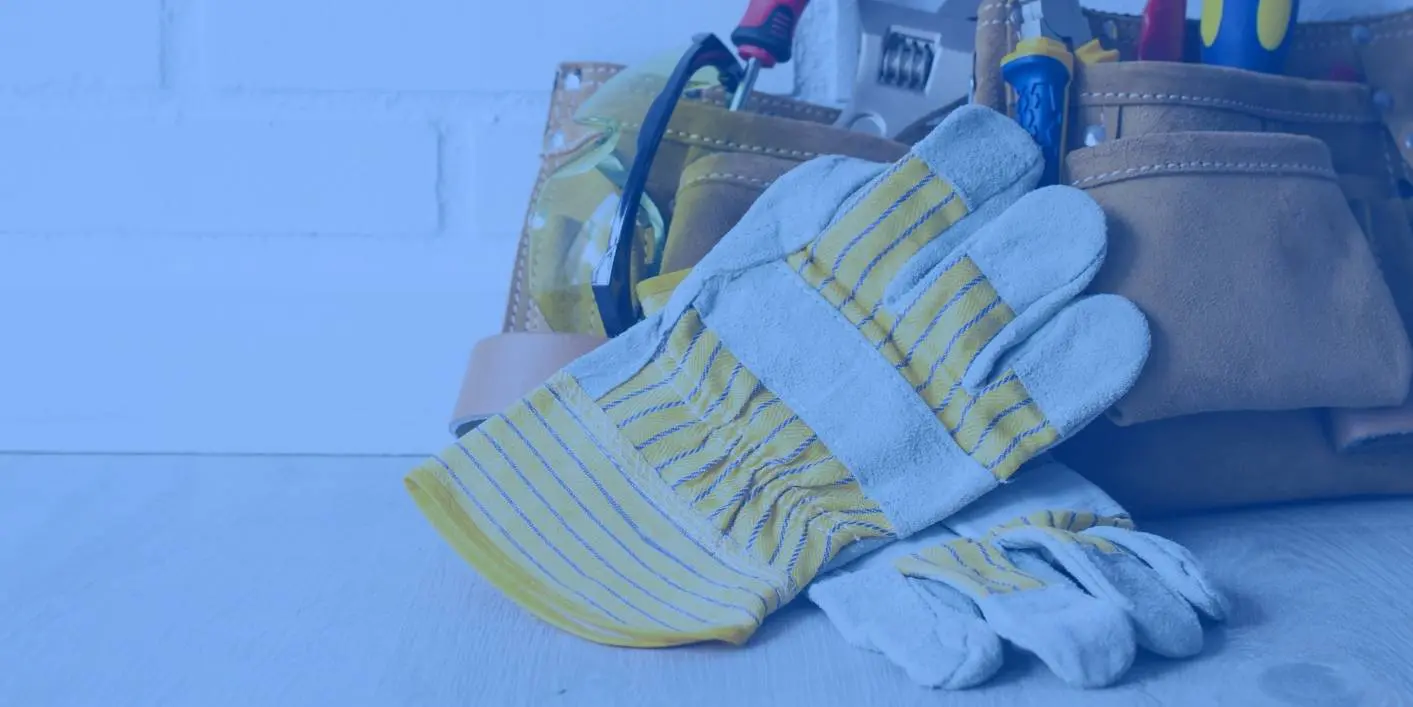Whether or not a tenant is liable for damages depends on multiple factors, such as maintenance obligation and if the tenant caused the damage. Read more about this topic in the article below.
Maintenance obligation
The main rule is that it is the landlord, who is obligated to keep the tenancy in a good condition during the period of rent – meaning that the landlord has to cover expenses towards repairs. This could for an example be the oven not working or a tap dripping. Although, it can be legally agreed in the rental lease that the tenant takes over either some or all of the maintenance obligation. This has to be agreed upon in the lease. Either way, the person who has the maintenance obligation is obligated to maintain and correct any defects.
It is normally seen that the tenant is assigned the interior maintenance, which concerns whitening, painting, wallpaper and floor painting. If any damage is to happen to one of these items, it is often the tenant, who is liable for damages and refurbishment.
Read also: Can a landlord evict you?
Become legally secure in your tenancy for 149 kroner.
Are you afraid of being cheated or have you already experienced it?
If you can become a member of DIGURA’s Membership, you can get help with all your questions and tenancy issues. You can feel secure in your tenancy for only 149 dkk per month.
- Legal advice via hotline
- Help to termination
- Rent check when needed
- Continuous check of your lease
- And much more..
The landlord’s maintenance obligation
The Danish Rental Act also states, that the landlord has to keep the tenancy in the condition, that can be expected when entering the rental agreement, during the rental period. The landlord has to repair any kind of damage included in the landlord’s maintenance obligation immediately after the tenant has made him aware of such damage. An exception is, that the landlord is not liable to defects and damages on inventory, that the tenant brought to the tenancy by him- or herself.
As a main rule, if the landlord fails to repair the damage after the tenant made him aware of such, the tenant can get the damage repaired at the landlord’s expense. Although, it is always advised to contact us at DIGURA before doing so, as a number of conditions needs to be met before this can be done.
How can a tenant become liable for damages?
If a damage occurs due to fact that a tenant has been using the item in a wrong way or neglected to clean the item, the tenant has to pay for a repair or a replacement. This is regardless of who has the maintenance obligation of the item.
The same applies if the tenant discovers a damage and fails to notify the landlord of this – even though the damaged item is covered by the landlord’s maintenance obligation. The landlord does not have access to the tenancy on a daily basis and as a result of this, the landlord has no way of knowing, if an item is damaged and needs to be repaired at his expense.
If a damage, included in the landlord’s maintenance obligation, was small and insignificant at first but then develops into an extensive damage due to the tenant not informing the landlord, it can become expensive for the tenant. Therefore, it is always important to notify the landlord of any signs of damages.
Example:
The tenant notices that a pipe in the bathroom is starting to show severe signs of rust and slight water leakage. It is the landlord who has the maintenance obligation of the pipe. The tenant does not inform the landlord about the rust. Five months later, the pipe breaks and an expensive water damage occurs in the tenancy. The tenant becomes liable, because he did not inform the landlord, who could have prevented the damage.
Read also: New housing proposal passed on January 30th, 2020!
Damages that the tenant is not liable for
If the tenant, weeks or months after moving in, finds a hidden defect or a damage, that the landlord has intentionally tried to hide or has lied about, the tenant does not become liable for these, as the tenant is not liable to damages that were present when moving in.
This could for example be punctured windows, which cannot be found out until cold temperatures arise. Make sure to notify your landlord of these damages as soon as you find out.
What if the damages are caused by someone else?
According to Danish law, you are not responsible for other people’s actions. An exception to this rule is, that a tenant will be held responsible to the damages in the tenancy caused by other people. The Danish Rent Act states that the tenant has to treat the tenancy responsibly, and that the tenant is liable for damage inflicted by negligent behaviourof the tenant, the tenant’s household or by others, that the tenant has given access to the tenancy. This could be visitors, family or a sub tenant.
What negligent behaviour exactly includes is a bit unclear. In general, it can be said that something can be categorized as negligent behaviour, if the displayed behaviour deviates from a normal use of the tenancy. The tenant’s knowledge of this behaviour being “wrong” is of no matter.
The responsibility applies whether the damages are caused by the tenant or people given access to the tenancy by the tenant. The tenant can have a redress claim towards the person responsible for causing the damage.
The tenant is notreliable for damages caused by people, that the tenant did not give access to the tenancy, such as burglars.
Read also: Can my landlord demand that I move out 14 days before termination?
Why should you get help from DIGURA?
Every month, we help thousands of tenants both via our membership solution and our case processing. When we process the cases, we achieve a positive result for the tenants in 98% of the cases. We are here to help you who are potentially being deceived by your landlord, and you who actually want to keep the money you are entitled to.
- Free assessment of case
- Risk free and no hassle
- No Cure No Pay
Get legal advice and avoid being deceived
The above is to be seen as a general guidance. We always recommend that you contact us to ensure that you get the proper necessary legal advice that is relevant for your specific case.
You can get help with this problem but also any other matters you may have. Unfortunately, we see many tenants that are being deceived. Often, they miss out on a lot of money – anything from a couple thousands to 30-40,000 DKK. Imagine what else you could spend the money on.
Let us help you
At DIGURA we are always available and easy to reach, you have your own legal advisor, and best of all, you only pay if we win your case. Therefore, it is risk free for you to get help from us.
If you need legal advice, you can get your case assessed below. It is free and our competent legal team will make a non-committal assessment of your case.










